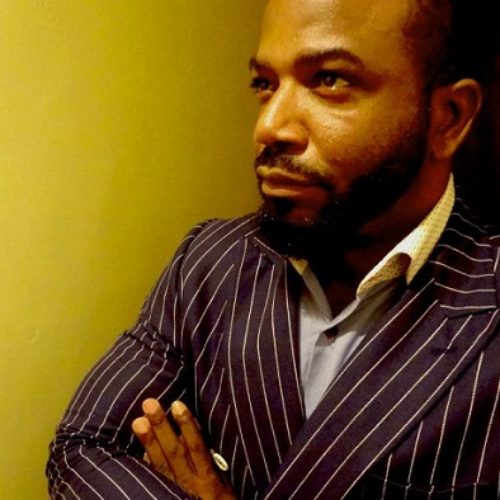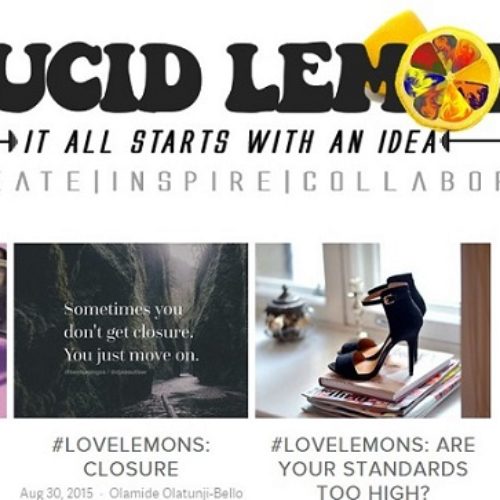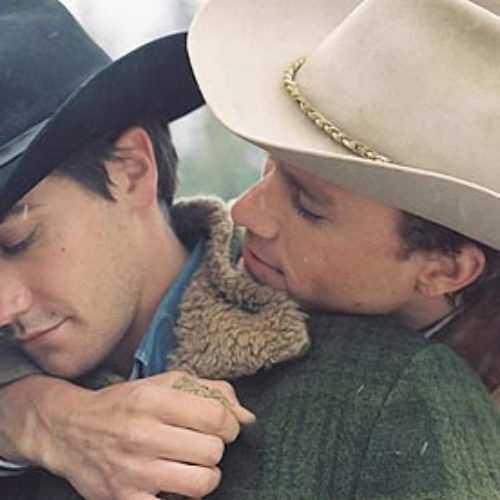My 10 Years Of Living With HIV
Bisi Alimi talks about his journey with HIV in this very compelling story published earlier on HuffingtonPost.com. Read.
*
 The morning I was diagnosed with HIV was like most others. I had just left my hotel and was heading for the International convention center to attend the Fourth National AIDS conference in Nigeria. It was May 2004, 10 years ago this month.
The morning I was diagnosed with HIV was like most others. I had just left my hotel and was heading for the International convention center to attend the Fourth National AIDS conference in Nigeria. It was May 2004, 10 years ago this month.
The day before, I had just given a presentation on HIV and men who have sex with men (MSM is the term to describe men who have sex with other men but do not identify as gay). I was sharing the stories of the friends I had lost to HIV. The most memorable was my best friend, Ibrahim.
Ibrahim was a year ahead of me at the University of Lagos. We connected immediately the first time we met. He was everything I wanted to be: tall and handsome, with swagger, a great sense of humor and a sharp intellect. It was a shock for me when one evening in June of 2002, I got a call that Ibrahim had been in the hospital for over two weeks and that his condition was deteriorating. Ibrahim had recently been complaining of a series of mysterious ailments, but I had no idea he was so sick.
When I walked into the room, what I saw changed my life completely. He was like a bone. His eyes were open but empty, his hands fragile, and his smile was that of someone barely hanging on to life. I rushed to his side, held his hands and could not hold back the tears. I still remember them burning my cheeks. He told me he had AIDS and that the doctor said he would not see the end of the week.
As I left the hospital, I was devastated, but held onto a promise I had made to him: that I would do everything in my power to get the message out about preventing HIV. At the time, I had no idea what HIV was. But I had that image of Ibrahim dying in my head. The image stayed with me, inspiring me to learn everything I could about HIV/AIDS.
I joined Alliance Rights Nigeria, a community-based organization that works with MSM in Nigeria. By 2003, I was their Program Director. That was what brought me to speak at the National AIDS conference in 2004, the first openly gay man to speak publicly at an event like this in Nigeria.
On that morning in May, I had just arrived at the conference when friends asked if I had ever been tested for HIV. I was terrified and sure that I was positive. I’d lost so many friends after Ibrahim, some of whom I had dated. After much convincing, I went into the testing booth. Fifteen minutes later, I emerged with the knowledge that I am HIV positive. I was just 29, and I thought my life was over. Over the next few weeks, I stopped eating and prepared to die.
In Nigeria in 2004, HIV was still highly stigmatized, particularly within the gay community. There was limited access to treatment, and those available had devastating side effects. (Ten years later, with advances in drug technology, pharmaceutical companies have been able to produce drugs that have fewer side effects.) I chose to hide my diagnosis for five years, forgoing treatment. I could not bear the shame and the rejection that I thought would come with disclosure.
Though I remained silent about my own diagnosis, I was also determined that HIV would stop with me. I was busy promoting the little I knew about prevention. I was doing community mobilization around condom usage. I was providing information on how to test, where to test and what being positive means, yet failing to live out my own positive messages to others.
It was the determination to keep Ibrahim’s memory alive and to slow the spread of the virus that led me to set up The Independent Project in Nigeria in 2005. With friends, we started one of the most aggressive campaigns against HIV within the MSM/Gay community. We were the first organization to use the term Gay instead of MSM; we conducted in-person community outreach and were engaged with government on discussions of policy.
This month, I look back 10 years. It has been a journey filled with many emotions. I am lucky to now have access to some of the best treatments in the world thanks to the National Health Service in The United Kingdom, where I now live. But there are over 10 million people in the world that must wait to have access to treatment.
With over 34 million people still living with HIV, we have a lot of work to do. For example, in Sub-Saharan Africa, women bear the burden of the virus and children are still born with the HIV; in Europe, MSM and injected drug users are still infected at higher rates and face stigma and discrimination; and in America, the burden of HIV is especially challenging in the African American community, particularly among women and gay men.
We’ve made dramatic strides against HIV/AIDS over the past 10 years, but as we look forward we need more than just political willpower to fight the virus; we also need to increase funding so everyone has access to treatment. We know that for every one person we put on treatments, we have saved at least two from becoming infected.
We also need to reduce and fight the culture that promotes stigma and discrimination that kept me from being tested for years. We know now that being aware of one’s status can save one’s life.
We need to keep our promise of trying to approach a rate of zero infection, especially in the transmission of mother to child.
I am here today 10 years later, living well and sharing my story so that I can fulfill my promise to Ibrahim of preventing others from dying of AIDS.
About author
You might also like
‘I died several times, but I didn’t die.’ Brand Expert, Kenny Badmus, shares his story of living with HIV in the last 15 years
To mark World AIDS Day which was yesterday, December 1st, Nigerian brand expert and founder of Orange Academy, Kenny Badmus, took to his Facebook page to share his inspiring story
A Collaboration With Kito Diaries
So, there’s a silent KDian named Sarah, who is seeking to do some work with KDians. She is Nigerian, an LGBT activist, believes every single person has a right to
Author of Brokeback Mountain Wishes She’d Never Written The Story
‘I wish I’d never written the story. It’s just been the cause of hassle and problems and irritation since the film came out. Before the film, it was all right…










7 Comments
lluvmua
May 14, 09:04Scary!!!
tikky20
May 14, 11:05Inspiring, Encouraging, Emotional and ,Yes! Scary!! I still long for the day when this demeaning illness would get a cure,just like many other infections of the past (Cholera,Typhoid,Malaria,Poliomyelitis etc)were wiping people from the face of the earth,but have been curtailed with inventions in science. Thanks to all who indulge themselves in the campaign against HIV/AIDS around the world and those scientists who toiled night and day to get to where we are now, when highly potent and effective drugs with minimal side effects are trending,more lives are being saved. But still more efforts have to be done, as someone who goes to the hospital everyday, I can understand/imagine what it feels to be HIV/AIDS positive merely looking at innocent infected children with their parents, loosing their lives everyday to this curse because their immune system is too weak to fight back. A cure would solve all these, giving a more realistic hope to the 34million around the world who are carrying this burden and the world at large,because we all are affected, directly or indirectly, and lay to rest the memories of all loved ones who have lost their live to this. #peace
alpha papi
May 14, 17:59rily scary o,we all hv to b careful.u see y it is bad to waka waka…
kendigin
May 15, 08:54Typical naija!
Waka waka is not the only way to get hiv o. My aunt got it from those needle they use to sew weavon to women’s hair. Everyone in the family suddenly despised her, till the day I asked my mum what she wld do if I was the one that got hiv. She became short of words
Thankfully, my aunt has been nursed back to health and lives happily with her husband and son.
So yes, we all have to be careful. But sex is not the only way to get it
pinkpanthertb
May 15, 09:28It’s the mentality most of us have, and it’s very erroneous. Once it becomes known that you are positive, instantly you are branded a whore who most certainly got it from sex, and just like that, you become ostracized. It’s a sad state of affairs, really.
alpha papi
May 16, 11:19how did she knw it ws needle she got it frm?wat I’m sayin is dt waka waka stil contributes,especially among tbs,nd from d above story ,he got it cos he didn’t stay on one place smh.
Absalom
May 19, 18:18When we learn about somebody’s pain, I don’t think “scary” is an empathetic thing to say. (Scary to whom? We, the listeners?) It’s discouraging, alienating. What I read in that one word is: Wow, wonderful, but I don’t wouldn’t want to be in your shoes.
Fine, but the situation is not about us, or what we want, or what we fear. It’s about the pain the speaker carries in their heart, the support they could use. Only a rich man is afraid of poverty; a poor man is already there. Only a HIV negative person is scared of infection; a HIV positive person is already there… so saying “Scary!”… I don’t know…